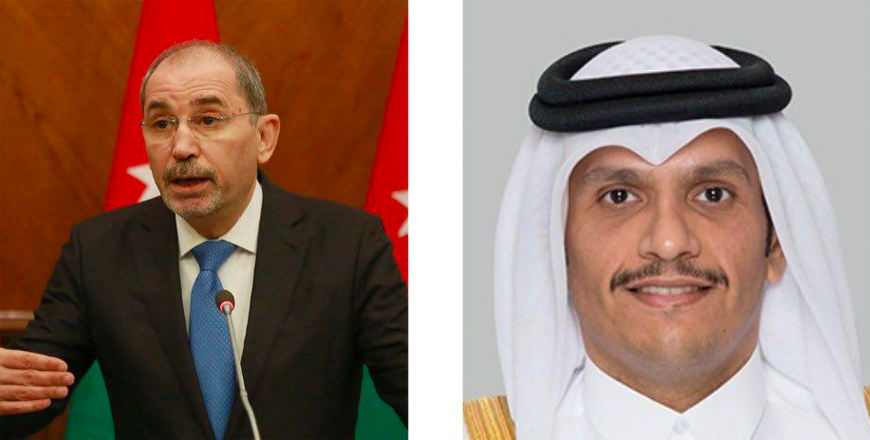You are here
Safadi, Qatari counterpart discuss outcomes of Gaza ceasefire negotiations in Doha
By JT - Aug 17,2024 - Last updated at Aug 17,2024

AMMAN — Deputy Prime Minister and Foreign Minister Ayman Safadi and Qatari Prime Minister and Foreign Minister Sheikh Mohammed Bin Abdulrahman Al Thani on Friday discussed efforts to end the Israeli aggression against Gaza, focusing on the latest Doha-hosted negotiations aimed at reaching a prisoner exchange deal that could pave the way for a permanent ceasefire.
Safadi, over the phone, reiterated Jordan's support for the efforts of Qatar, Egypt, and the United States to finalise the deal, stressing the need for a swift resolution, according to a Foreign Ministry statement.
Stressing the importance of these diplomatic efforts, he praised the joint communique issued by the parties.
Safadi called for increased international pressure on Israel to end its attacks on Gaza and urged action by international law, which condemns war crimes and stipulates accountability for violations of humanitarian principles.
Noting that Israeli Prime Minister Benjamin Netanyahu is reportedly obstructing the finalisation of the swap deal, he called on all stakeholders to exert direct and effective pressure on Netanyahu to facilitate the deal.
The cessation of Israeli aggression in Gaza is the first critical step towards de-escalation, Safadi said, calling to address the worsening humanitarian catastrophe in Gaza.
The discussion also touched on escalating tensions in the occupied West Bank and Jerusalem holy sites, with both sides condemning illegal Israeli actions, including recent incursions by extremist Israeli ministers into the Al-Aqsa Mosque/Al-Haram Al-Sharif on Tuesday and settler attacks on the Palestinian village of Jit on Thursday.
They also expressed concern about the continued expansion of Israeli settlements.
Safadi and Sheikh Mohammed reaffirmed their commitment to continued coordination aimed at ending the aggression on Gaza, delivering humanitarian aid, and protecting regional stability from further escalation into a wider war.
Related Articles
AMMAN — Deputy Prime Minister and Foreign Minister Ayman Safadi on Friday met with US Secretary of State Antony Blinken and discussed effort
AMMAN — Representatives of several Jordanian companies participating in the Doha-hosted 1st International Products Exhibition and Conference















